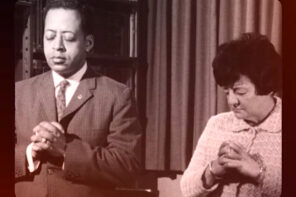The Episcopal Church of the U.S. announced on wednesday that Presiding Bishop Katharine Jefferts Schori, in consultation with of her nine-member Council of Advice, has removed South Carolina bishop Mark Lawrence from ordained ministry. The revocation of Lawrence’s clerical status and spiritual authorities comes after his announcement of the South Carolina Diocese’s disassociation with the Episcopal Church in November. “We have moved on,” he declared in an address at a special convention at which members of the Diocese voted to sever its ties to the Episcopal Church.
The Diocese’s departure follows the Triennial General Convention’s decision last July to affirm access to ministry to transgender Episcopalians in good standing and to move forward with the implementation of a rite of blessing for unions of same gender couples. One of the founding dioceses of the Episcopal Church in the United States in 1790, South Carolina is the fifth to succeed from the Church, following the Dioceses of San Joaquin in central California; Fort Worth, Texas; Quincy, Illinois; and Pittsburgh, PA.
A pastoral letter from Jefferts Schori to members of the Diocese, however, made clear that The Episcopal Diocese of South Carolina, as with other dioceses voting to secede, “continues to be a constituent part of The Episcopal Church, even if a number of its leaders have departed.” Steps have been taken to reorganize the Diocese within the Episcopal Church under new leadership, but if history serves, it is likely that wrangling over church property, which Lawrence had moved to separate from the Diocese proper in order to block claims to real estate and other property, will soon follow.
The Church continues to resolve property disputes with schismatic churches in Pennsylvania, Virginia, Tennessee, and Texas, but with the exception of All Saints St. Pawley’s Island in South Carolina it has prevailed in property disputes with schismatic churches in cases reaching state and federal Supreme Courts.




